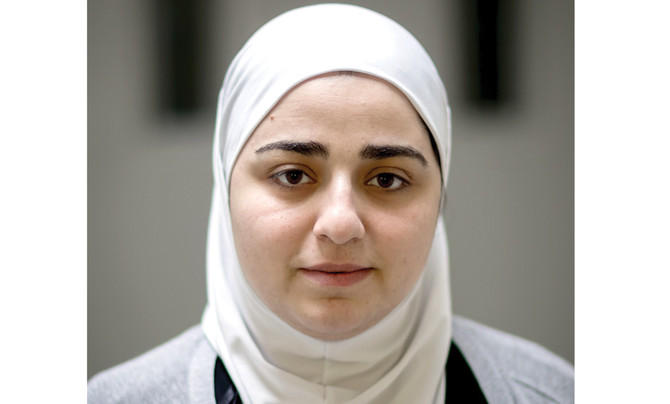BERLIN: German police have arrested two Syrian men, one of whom is suspected of involvement in the killing of 36 Syrian regime’s employees in Syria in March 2013 and committing war crimes, prosecutors said on Thursday.
Abdalfatah H. A., 35, is suspected of being a member of the Al-Qaeda-linked Nusra Front and of carrying out a death sentence.
With other members of his unit, he is believed to have killed 36 employees of the Syrian regime who were protected under international law, said the prosecutors.
He was arrested in Duesseldorf in northwestern Germany.
Spiegel Online reported that he was an asylum seeker but the prosecutor’s office refused to confirm that.
The second man, Abdulrahman A.A., 26, is also suspected of being a member of the Nusra Front and of dealing with money and transport for his unit. He was arrested in the western German town of Giessen.
Both men are believed to have been equipped with Kalashnikovs, and to have helped seize a big arms depot in November 2013 near Mahin, south of the Syrian city of Homs.
In Germany, suspects are identified only by their first names and initials.
Prosecutors separately confirmed they had received a complaint filed by a group of people who said they had been tortured in Syrian intelligence service prisons.
The European Center for Constitutional and Human Rights, seven Syrians and two Syrian lawyers said they had submitted the first such complaint against six senior officials in the Syrian Military Intelligence Service known by name.
The aim of the complaint was to secure international arrest warrants and to start investigations by the prosecutors’ office against those responsible for crimes, said the complainants in a statement.
“This complaint is very welcome because it may lead us to an investigation,” said a spokeswoman for prosecutors in Karlsruhe, adding that German authorities had since 2011 been involved in looking at possible investigations of crime committed in Syria.
The new complaint alleges crimes against humanity and war crimes committed in three Damascus prisons between October 2011 and July 2015, based on the testimonies of 12 witnesses, seven of whom are complainants.
The Syrian ex-detainees, men and women aged 26 to 57, are joined by Syrian lawyers Anwar Al-Bunni and Mazen Darwish, who have both themselves been victims of torture and abuse in Syrian regime cells.
“In Syria there is total impunity, which produces further violence. Without justice there will be no political solution to the conflict,” said Darwish.
Al-Bunni added: “Massive human rights violations must not remain unanswered. This is clear since the Nuremberg trials. Torture is absolutely forbidden.”
The complaint was launched under the principle of universal jurisdiction, which allows the German judiciary to become active in cases where neither the victims nor the perpetrators are German citizens.






















